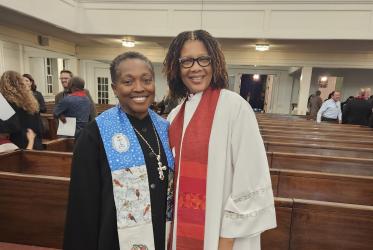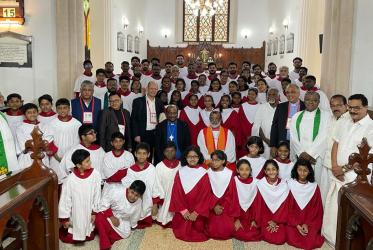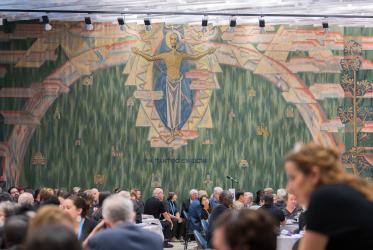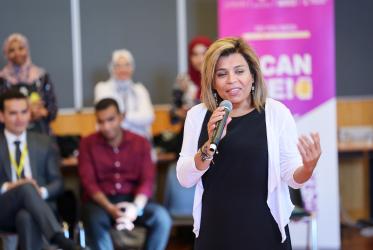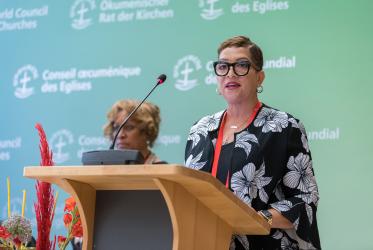Displaying 61 - 80 of 1928
Pan-African Women of Faith and the Vision of Christian Unity, Mission, and Justice
01 November 2023
Thirty days that changed the ecumenical movement
23 October 2023
WCC postpones roundtable on Ukraine
11 October 2023
Recommended Practices to Combat HIV-Related Stigma
A Guidebook for Local Faith Communities
05 October 2023
Greetings pour in to commemorate WCC’s 75th anniversary
22 September 2023
WCC appointed as permanent accompanier in Colombian peace talks
21 September 2023
In wake of floods in Brazil, WCC expresses concern and solidarity
09 September 2023
African Christians underscore crucial role of ecumenism
23 August 2023
Ecumenism in the Philippines means hope and resilience
22 August 2023

